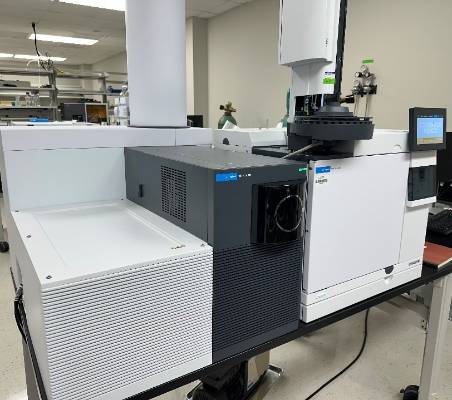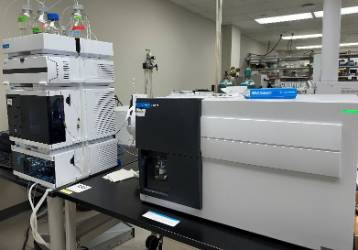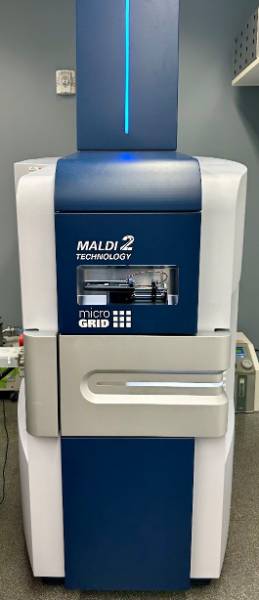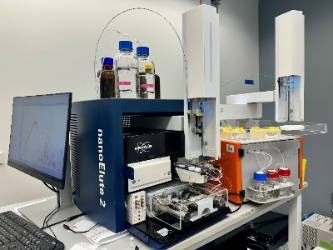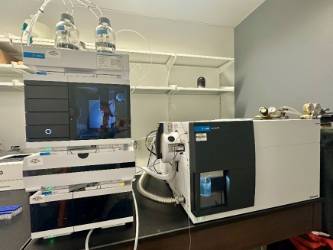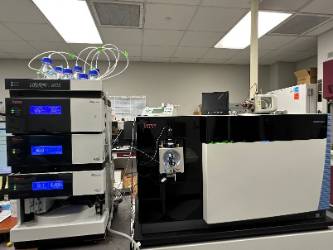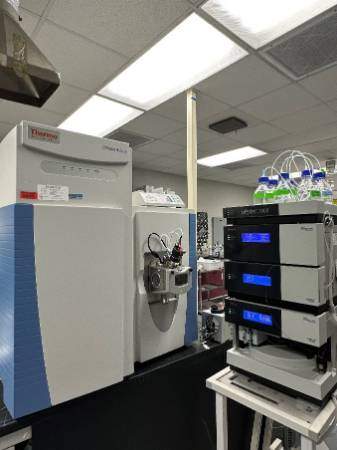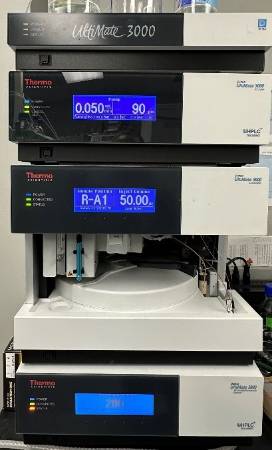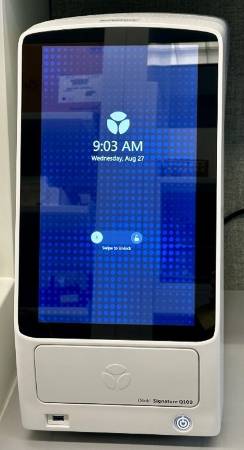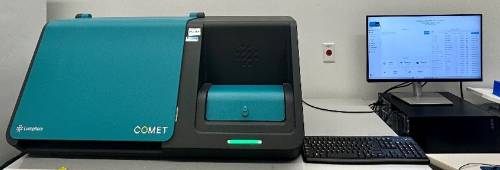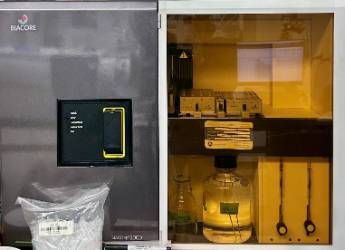Proteomics & Metabolomics Core
The Proteomics and Metabolomics Core is dedicated to develop, implement and provide high-quality analytical methodology for determination of molecules involved in disease development, progression and treatment. The standardized techniques offered by Core generate data that can be comparable and cross referenced among specific experiments of individual investigators. Particular attention in the Core is given to quality control. All the methods in the Core are defined by a series of steps to maximize quality of the output and described in Standard Operational Procedures (SOP). Reproducibility is monitored and ensured within the system with procedures implemented to identify any changes and shifts in the platform during sample analyses. This helps to standardize quantitative measurements and facilitate research progress that leads to a better understanding of biological processes.
Services offered by Core Facilities include Sample extraction, High throughput screening, Deep metabolomics and proteomics profiling using LC- and GC-MS techniques, Targeted analysis, Data analysis, Pathway analysis and Flux analysis.
In addition, Molecular imaging is also available. In this case, spatial protein and metabolite distribution is determined using newly established MALDI HiPLEX-IHC technology available through Bruker and AmberGen. It allows for intact protein imaging by combining transcriptome relevant information from labelled protein expression mapping with advanced small molecule imaging from the same tissue section using MALDI Imaging. The method combines MALDI-based mass spectrometry with Immunohistochemistry (IHC) using specific antibodies labeled with a set of photocleavable mass-tags reporters. Platform is used to gain high resolution tissue-wide and single-cell inflammatory RNA and protein expression data with two-dimensional lineage and proximity information.
LCRC 611 (office)
LCRC 627, 928, 941 (labs)
CSRB 344 (Office)
CSRB 342 (Metabolomics lab)
CSRB 335 (IT Lab)
CSRB 331 (Proteomics lab)
The Proteomics and Metabolomics Core is well equipped for a variety of experimental samples with instrumentation for liquid and gas chromatography, mass spectrometry, Maldi tissue imaging, Biomarker Analysis, Western Blotting, Multiplex Imaging, and Surface Plasmon Resonance.
Mass Spectrometers and Software
|
|
Agilent 8890GC coupled to Agilent 7250 GC/Q-TOF
Read more about capabilities of our Agilent 7250 GC/Q-TOF here.
|
|
|
Agilent 6495 LCQQQ-MS system
Read more about the capabilities of our Agilent 6495 LCTQ here.
|
|
|
Maldi Timstof-Flex2 NanoElute System coupled to EvoSep ONE EV1000
|
|
|
Agilent 1290 Infinity II HPLC + Agilent 6475 LC/TQ MS system
|
|
|
Thermo Fisher Orbitrap Fusion Tribrid mass spectrometer coupled to a Thermo Fisher Dionex Ultimate 3000 nano HPLC system.
|
|
|
Thermo Fisher Q Exactive Plus mass spectrometers coupled to Thermo Fisher Dionex Ultimate 3000 nano HPLC system.
|
Thermo Proteome Discoverer v2.4 software for qualitative and quantitative mass spec data analysis.
|
Liquid Chromatography System
|
|
Dionex Ultimate 3000 Multidimensional Liquid Chromatographer with UV/Vis detector |
Targeted Biomarker Analysis
Multiplex Imaging
|
|
Lunaphore Comet
|
Surface Plasmon Resonance
|
|
BIAcore 3000 instrument, controller and analysis software
|
Sample Preparation Equipment
- NanoDrop ONE
- -20 and -80 freezers for sample storage
- SpeedVac Sample Lyophilyzers
- Assorted centrifuges and microtube temperature blocks
- Opentron Flex Robot
- Labconco Freezone Triad Freeze dryer
- EVOSEP ONE EV1000
Jiri Adamec, PhD
Professor
Director of Core Laboratories
LSUHSC School of Medicine
Stanley S. Scott Cancer Center
Department of Interdisciplinary Oncology
1700 Tulane Ave, Room 611
New Orleans, LA70112
P: (504) 210-3538
F: (504) 210-2970

